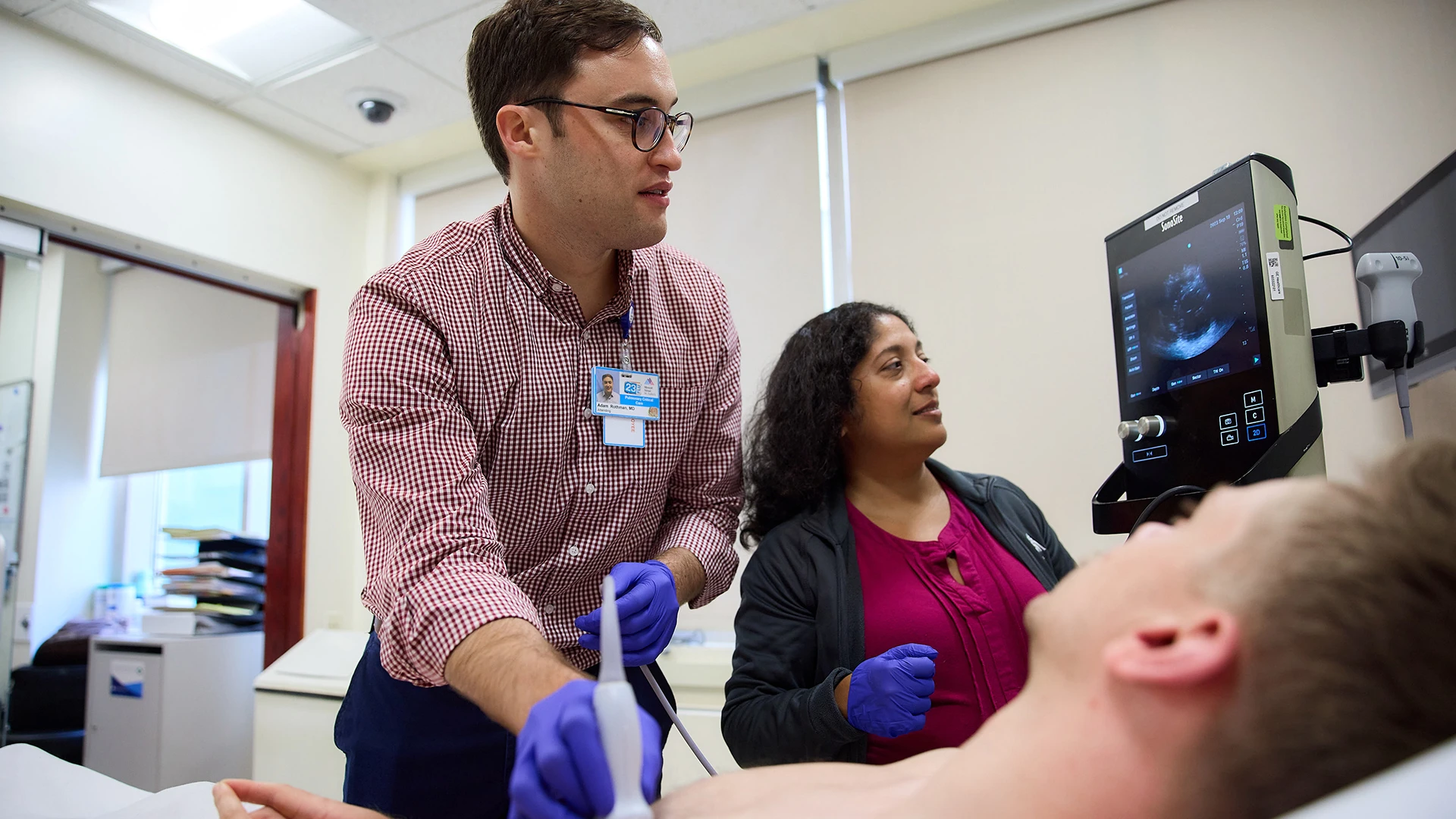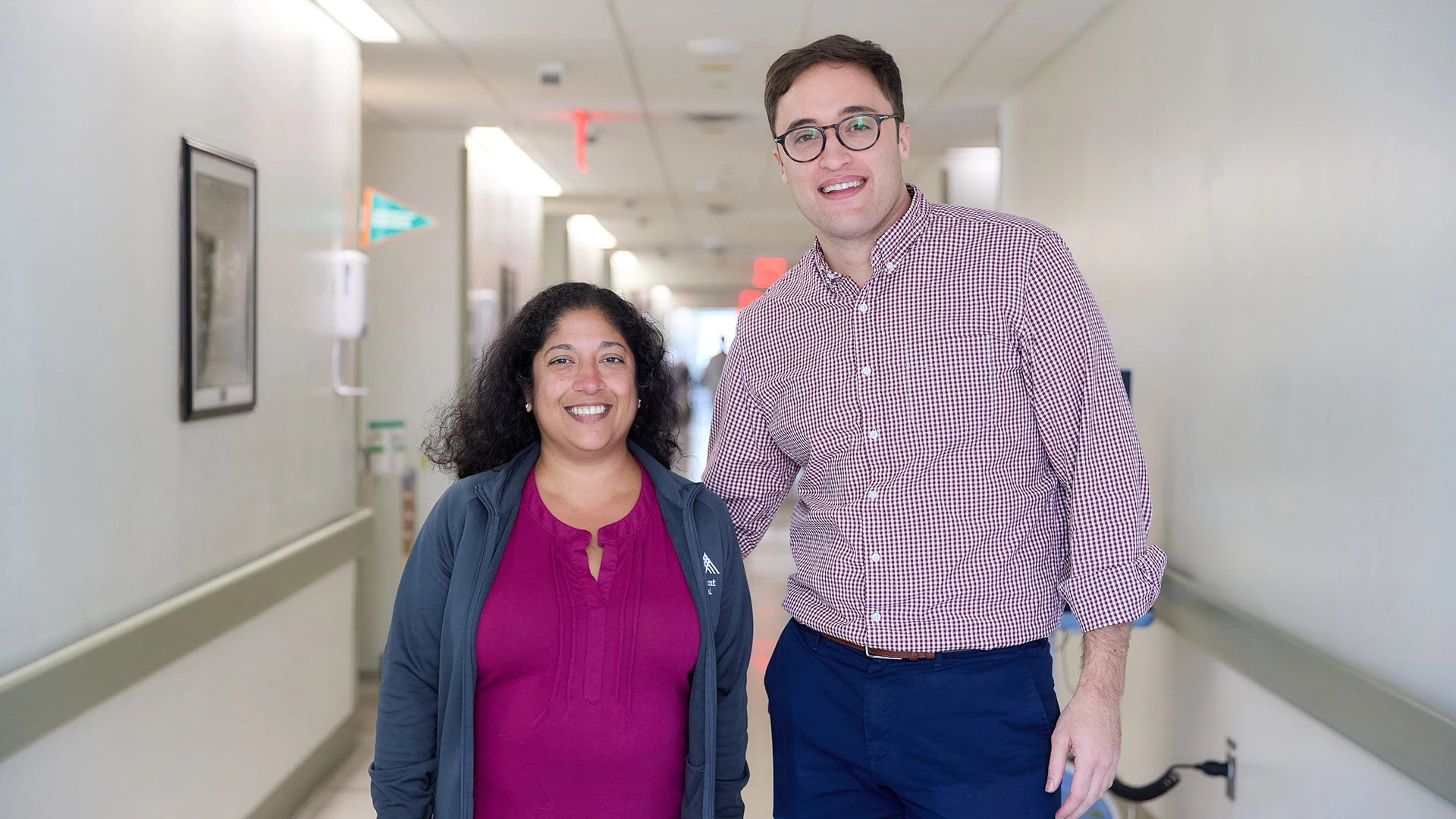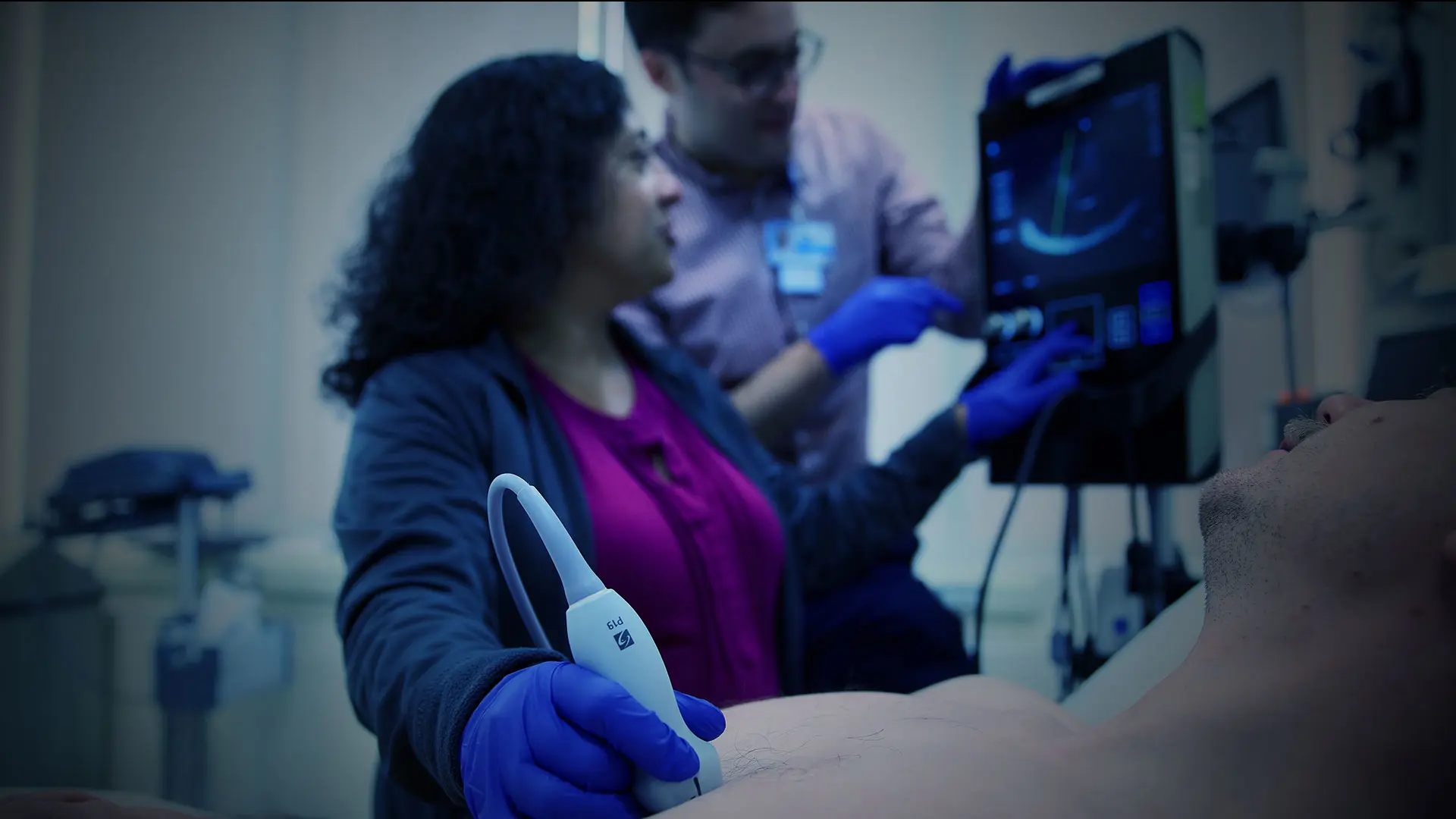As an agile diagnostic tool that can significantly improve patient outcomes by delivering results quickly and efficiently at the bedside, ultrasound has grown significantly in importance in both inpatient and outpatient settings. That has placed a premium in recent years on ensuring that physicians are proficient in the ever-changing technology, a challenge Mount Sinai is meeting through its leadership role in a regional point-of-care ultrasound (POCUS) course for pulmonary critical care fellows.
“As point-of-care ultrasound becomes increasingly important, particularly in the intensive care unit, so do introductory courses and longitudinal training in POCUS,” says Paru Patrawalla, MD, Associate Professor of Medicine (Pulmonary, Critical Care and Sleep Medicine), and Medical Education, at the Icahn School of Medicine at Mount Sinai. She is also Director of the Pulmonary Critical Care Fellowship Program at Mount Sinai West, Mount Sinai Morningside, and Mount Sinai Beth Israel. “Full-body ultrasound is a vital skill for all our fellows to learn, underscored by the fact that fellows will now be required by the Accreditation Council of Graduate Medical Education to be competent in POCUS.”
To help bring that knowledge and skills base to pulmonary and critical care fellows, Dr. Patrawalla serves as co-chair of the regional POCUS course for fellows in the New York/New Jersey area. Since it was created in 2007, the regional program, which has served as a model for the growth of similar educational efforts across the country, has trained more than 1,000 fellows from 26 fellowship programs at academic centers within the New York metropolitan region.
Mount Sinai, for its part, sends first-year pulmonary critical care fellows (averaging 12 across four hospitals: Mount Sinai West, Mount Sinai Morningside, Mount Sinai Beth Israel, and The Mount Sinai Hospital) to the course and provides volunteer faculty to teach the program, which is hosted by Montefiore Medical Center in the Bronx. In addition to Dr. Patrawalla, Mount Sinai instructors currently include Jason Filopei, MD; Adam Rothman, MD; and James Salonia, MD, all Assistant Professors of Medicine (Pulmonary, Critical Care and Sleep Medicine).

Adam Rothman, MD, and Paru Patrawalla, MD, perform a bedside sonogram on a patient.
As a first-year pulmonary and critical care medicine fellow, Dr. Patrawalla attended the first POCUS course for fellows in 2007. “At the time, even most faculty in critical care medicine didn’t know how to use ultrasound,” she recalls. “Several experts who were early adopters of the technology ran the course, and I eventually became co-chair along with Paul Mayo, MD [a pulmonary care specialist now affiliated with Northwell Health], and others. Over the past decade, it has developed into a collaborative regional training program that accepts around 120 fellows a year at minimal cost to sending institutions.”
Specifically, POCUS training is a three-part ultrasonography curriculum built on didactic learning and hands-on practice. The introductory phase provides basic knowledge and skills acquisition, including how to obtain accurate images, and how to interpret them in order to identify pathology that can help guide physicians in their treatment. The second phase—longitudinal practice—is even more critical. Here, the training shifts to the fellows’ own clinical setting, where they hone their new skills by performing daily bedside ultrasounds under the watchful eye of a faculty member. Mount Sinai fellows benefit from the uploading of all images they acquire to QpathE, a cloud-based storage system accessible across all eight Mount Sinai acute-care hospitals. “Even if the fellow is not with the attending at the time, the images can be pulled up later on the faculty member’s computer for review and feedback to the trainee on how to improve them,” Dr. Patrawalla explains.
From this intense hands-on practice, trainees proceed to the third phase of POCUS training where they further sharpen their expertise by taking on teaching roles. For three or four of Dr. Patrawalla’s fellows each year, this means returning to the introductory course at Montefiore as junior faculty to instruct first-year fellows.
“It’s gratifying personally to see that by the time they are third-year fellows,” she says, “they have mastered POCUS and now have the ability to integrate ultrasound images with all the other data on the patient to significantly improve clinical diagnosis and the choice of treatment.”

Drs. Patrawalla and Rothman teach bedside ultrasonography to pulmonary critical care fellows.
